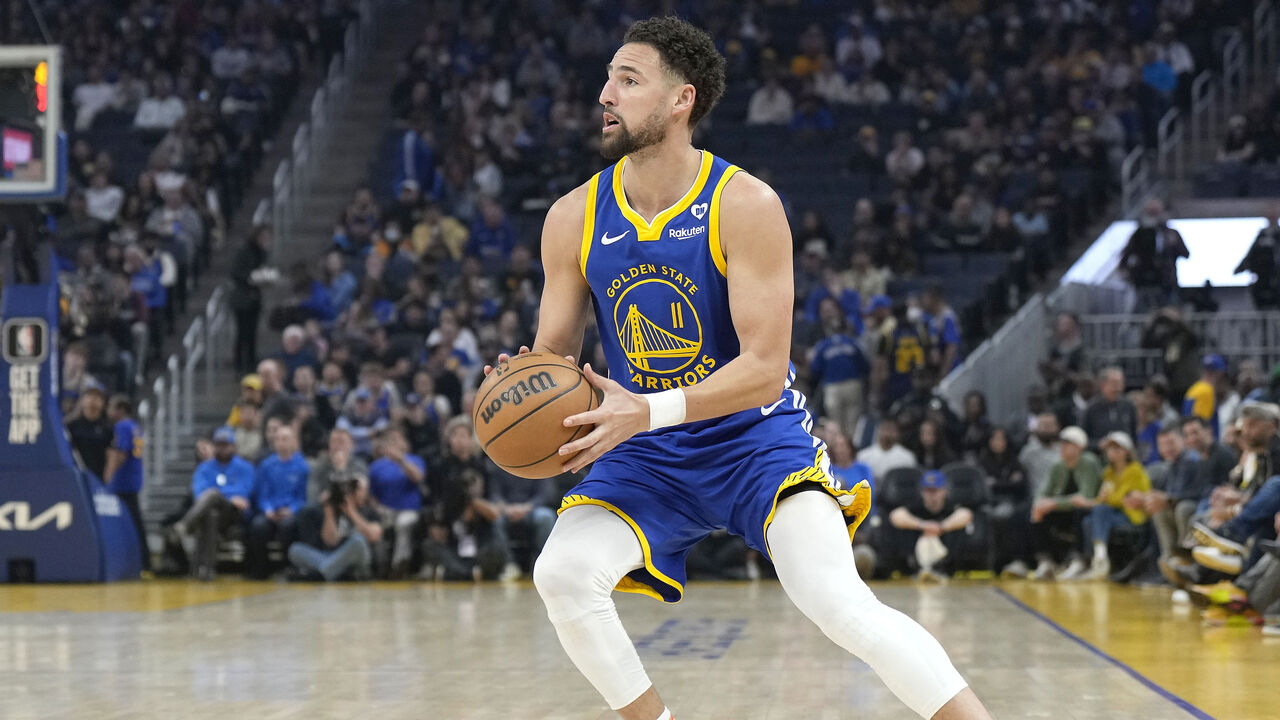Breaking down the biggest deals from Day 2 of NBA free agency
The NBA offseason is officially here. In addition to negotiating with their own free agents, teams are now permitted to negotiate with those from rival teams (though new deals can’t be signed until the NBA’s moratorium is lifted on July 6). We’ve already broken down all of the big contracts agreed to on Day 1 of free agency. Here’s some quick-hitting analysis of the biggest deals reached on July 1.
76ers sign Paul George (4 years, $212M), re-sign Tyrese Maxey (5/$204M), re-sign Kelly Oubre Jr. (2/$16.3M)
From the moment we realized Philadelphia would have the cap space to ink a max-level free agent before re-signing Maxey, George emerged as the obvious target. Sure, there will be the odd barb thrown around about how the Sixers are trying to help Joel Embiid get over the postseason hump by pairing him with an aging, injury-prone star who has his own playoff demons. But such criticism ignores how perfectly George fits between Embiid and Maxey.
As a star forward who can play on and off the ball, George adds a new dynamic to the Sixers’ offense, which already scored more efficiently than the record-setting Celtics when Embiid and Maxey shared the court in 2023-24. A career 38.5% 3-point shooter who shot a career-high 41.3% from deep this season, George’s presence will open up the floor for Philly’s top two stars and provide so much more than just the spacing Tobias Harris supplied.
While sliding in as more of a tertiary scorer is a great fit – and good for self-preservation – at this stage of George’s career, the nine-time All-Star is still capable of being the No. 2 option on a contending team and even carrying an offense altogether on any given night or for stretches of the campaign. He just became the eighth player in history to average 22-plus points while shooting at least 50% inside the arc, 40% from deep, and 90% from the free-throw line, and he’s averaged at least five assists in three of the last four seasons.
In theory, it all comes together perfectly for head coach Nick Nurse. George eases the scoring and playmaking burden on Embiid and Maxey and adds another layer of star insurance if and when the former fights the injury bug. He can also continue to exert maximum effort on the defensive end with fewer offensive responsibilities than ever before. A premier defensive combo with George guarding the perimeter/wing and Embiid patrolling the paint means Maxey will also be better protected on that end.
Even coming off George’s healthiest season (74 games played) in five years, there will be valid concerns about how the 34-year-old’s contract will age. Good on the Sixers for paying up anyway. Philadelphia has an MVP-level superstar in his prime, a secondary star only just coming off his rookie-scale contract, and positioned itself to have the kind of offseason flexibility rival contenders can only dream of. The team had to come out of this summer as surefire championship hopefuls, and with George in tow, it’s done just that, giving Embiid arguably the best supporting cast of any MVP candidate.
After the Clippers played hardball with George (despite not being in an advantageous position to do so), credit PG for still having the leverage to command a full max contract going into Year 15, bringing his career earnings to $520 million.
As for Oubre, the veteran earned a starting spot in his first season with the Sixers, and his two-way play will be welcomed as Philly builds out a supporting cast around its new Big Three. (That supporting cast also now includes Andre Drummond and Eric Gordon.) – Joseph Casciaro
Mavericks land Klay Thompson (3 years, $50M)
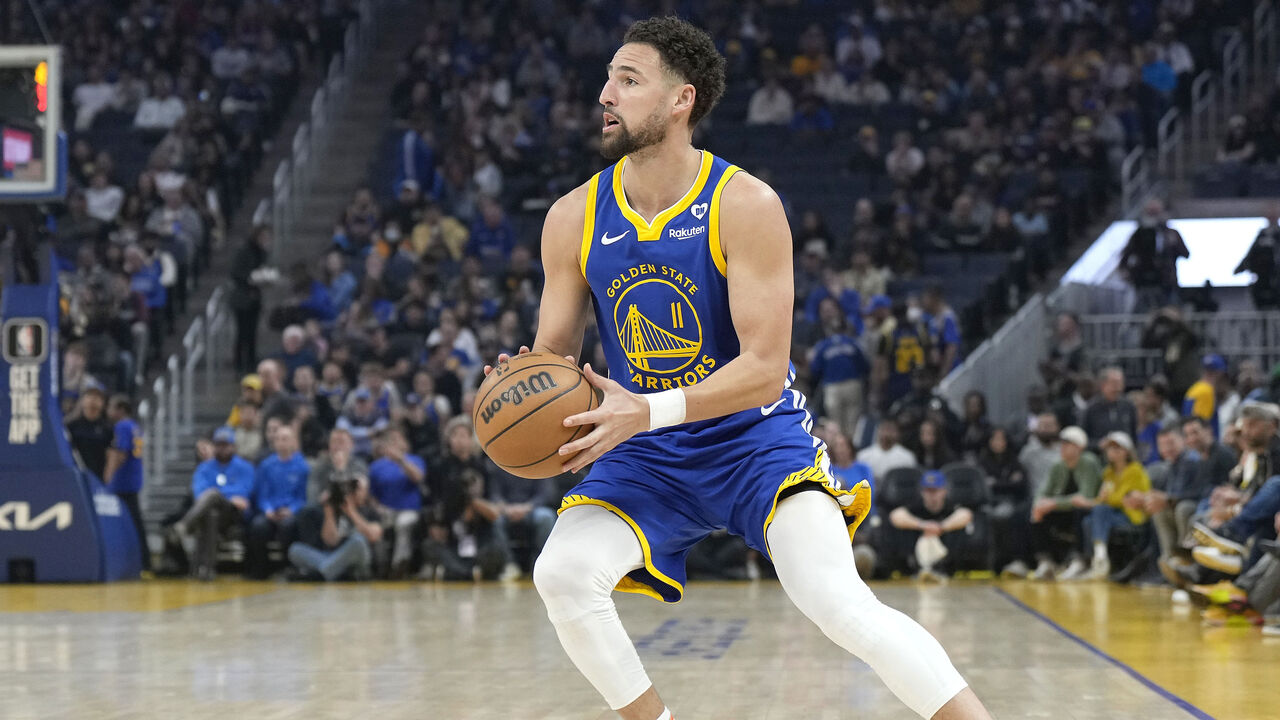
The end of an era in the Bay Area is the start of a new one in Dallas, as Thompson is reportedly joining the new-look Mavs as part of a multi-team sign-and-trade that will send Josh Green to Charlotte. Thompson’s new contract also includes a third-year player option after the future Hall of Famer reportedly turned down more lucrative four-year offers.
As a 34-year-old with serious knee and Achilles injuries in his past, a longer, more expensive contract for Thompson could’ve gotten ugly – we’ve already seen how a decrease in quickness has cost him on the defensive end. But this price range feels right for a sharpshooter who, even in decline, still averaged 17.9 points while shooting 38.7% on nine 3-point attempts per game. He also led the league in free-throw shooting (92.7%).
The gravity created by Thompson’s off-ball movement and the threat of his jumper will only bolster an offense that already benefits from the drive-and-kick brilliance of Luka Doncic and Kyrie Irving. There will be nights that attack looks unstoppable. The questions will come on the other end, as starting Thompson beside Doncic and Irving could be a recipe for defensive disaster. Perhaps starting the newly acquired Naji Marshall and using Thompson as a super sub (and occasional closer) makes more sense.
Through two days of free agency, the Mavs have essentially replaced Green, Derrick Jones, and Tim Hardaway with Thompson and Marshall (after acquiring Quentin Grimes last week). – Casciaro
Celtics extend Derrick White (4 years, $125.9M)
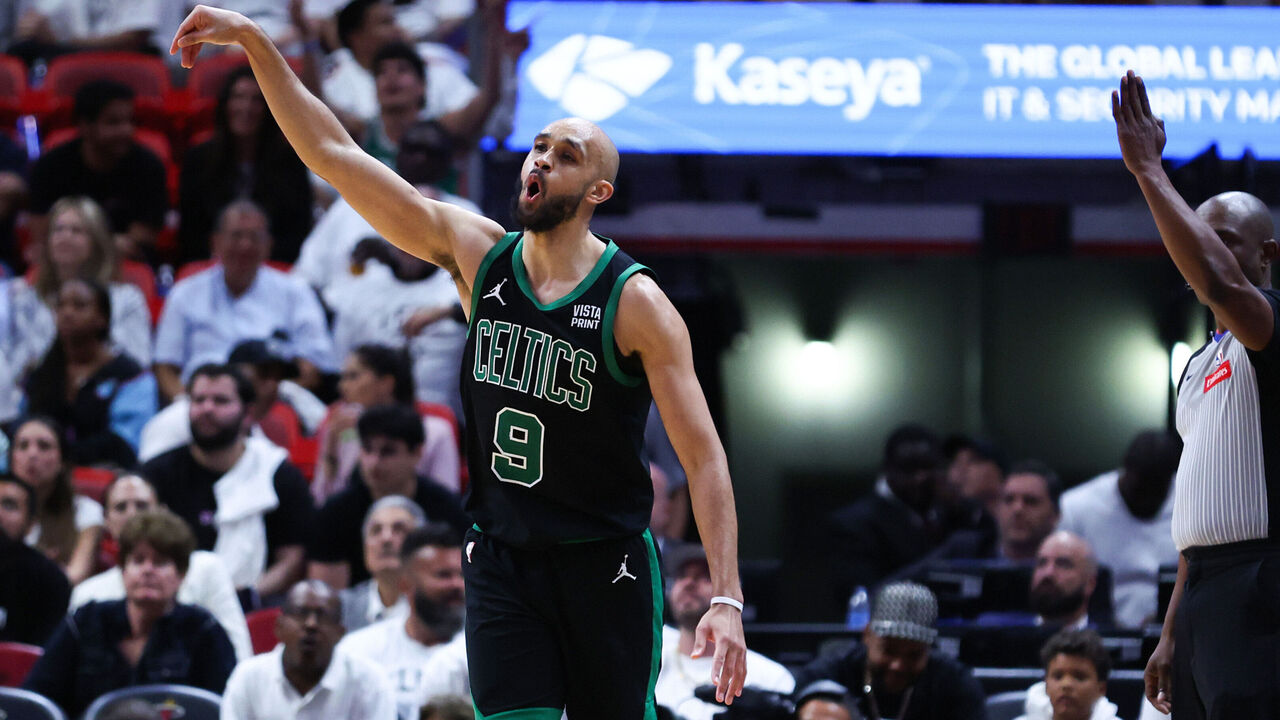
From the moment Derrick White landed in Boston ahead of the 2022 trade deadline, the guard and the Celtics have proven a match made in basketball heaven. The team’s 3-point-heavy attack and switch-happy defensive scheme are the perfect systems to showcase and maximize White’s two-way abilities.
This contract marks the most Boston could’ve extended White for, and it comes with an average salary of just under $31.5 million for a non-All-Star. But White is a star within his role and an integral piece of the Celtics’ championship puzzle.
Assuming Jayson Tatum is also extended soon, the champs will have White, Tatum, Finals MVP Jaylen Brown, Jrue Holiday, and Kristaps Porzingis all signed for at least the next two seasons after running roughshod through the league in 2024. The Celtics are about to get incredibly expensive but, unlike fellow second-apron teams, Boston already has its core rotation locked up, controls most of its own draft picks, and has already proven that the spending will come with perennial contention – and all the extra revenue that comes with it.
The only thing that could bring uncomfortable payroll-related questions with it is a potential sale of the franchise. – Casciaro
Thunder sign Isaiah Hartenstein (3 years, $87M), re-sign Isaiah Joe (4/$48M), re-sign Aaron Wiggins (5/$47M),
The Thunder came into this offseason with a ton of optionality and a couple of clear areas of need. They addressed one of those areas by upgrading Josh Giddey’s spot in the starting lineup with a trade for Alex Caruso. And they just acquired maybe the single best answer to arguably their biggest flaw. In signing Hartenstein, Oklahoma City – which won 57 games in 2023-24 despite finishing 28th in rebound percentage – adds a 7-footer who gobbled up 11.9 boards per 36 minutes last season while running the second-highest offensive rebounding rate in the league.
The Thunder paid a hefty premium to make that addition – a $29-million AAV is mighty steep for a guy who’s never played more than 25 minutes a game – but they had money to burn and likely nowhere better to spend it. The deal is also reportedly front-loaded and not fully guaranteed in Year 3, which is when new deals for Jalen Williams and Chet Holmgren would kick in.
On top of his rebounding prowess, Hartenstein is a tremendous rim protector who’ll further bolster a defensive unit that already ranked fourth in points allowed per possession before the additions of him and Caruso. Hartenstein and Holmgren are a twin-tower tandem capable of completely blotting out the sun on the back line, if or when opponents manage to break through the perimeter barrier set up by the likes of Caruso, Lu Dort, Williams, Shai Gilgeous-Alexander, and Cason Wallace. Scary.
Things get really interesting on the offensive end. Hartenstein isn’t a spacer, so signing him to presumably start and bump Holmgren down to the four represents a significant philosophical shift. Staggering patterns will limit the amount of overlap between the two, but you don’t give a guy this amount of money to be an 18-minute-a-game backup. As visible as the rebounding issue was, the Thunder’s offense was what ultimately let them down in the playoffs. Part of that letdown was the result of Holmgren being guarded by forwards rather than centers, which opponents can now do without even having to cross-match their fives onto Thunder wings.
That said, there’s an argument that Hartenstein can be a more complementary offensive player than Giddey was with a center guarding him. Hartenstein’s a terrific screener and an excellent short-roll passer, with a sneaky good touch from floater range (he shot 54% from that zone last season). Perhaps most importantly, he’s a second-chance-generating machine, and that alone might make him more valuable than Giddey in the half court. Heck, the Knicks had a 120.3 offensive rating with Hartenstein on the floor last season, which was a tick better than the Pacers’ league-best overall mark.
Bringing him in will certainly complicate Holmgren’s offensive role somewhat and relegate him to spot-up duty more often. All of the team’s stars will have to make some adjustments. The front office is betting that the positives will outweigh whatever downside comes with those adjustments, and it’s easy to see why.
Slightly overshadowed by the Hartenstein signing, the Thunder also struck team-friendly deals to retain a couple of key depth pieces. Joe is the best shooter on the team, and that has outsized value within an offense that has every other base covered. (He can hold his own at the defensive end, too.) Wiggins is a little things king who plugs gaps, scores efficiently on low volume, and makes winning plays at both ends of the floor. Locking up both 25-year-old role players long term – for less than mid-level money – is a nice way to backfill a roster that’s absolutely loaded at the top. – Joe Wolfond
Pistons sign Tobias Harris (2 years, $52M)
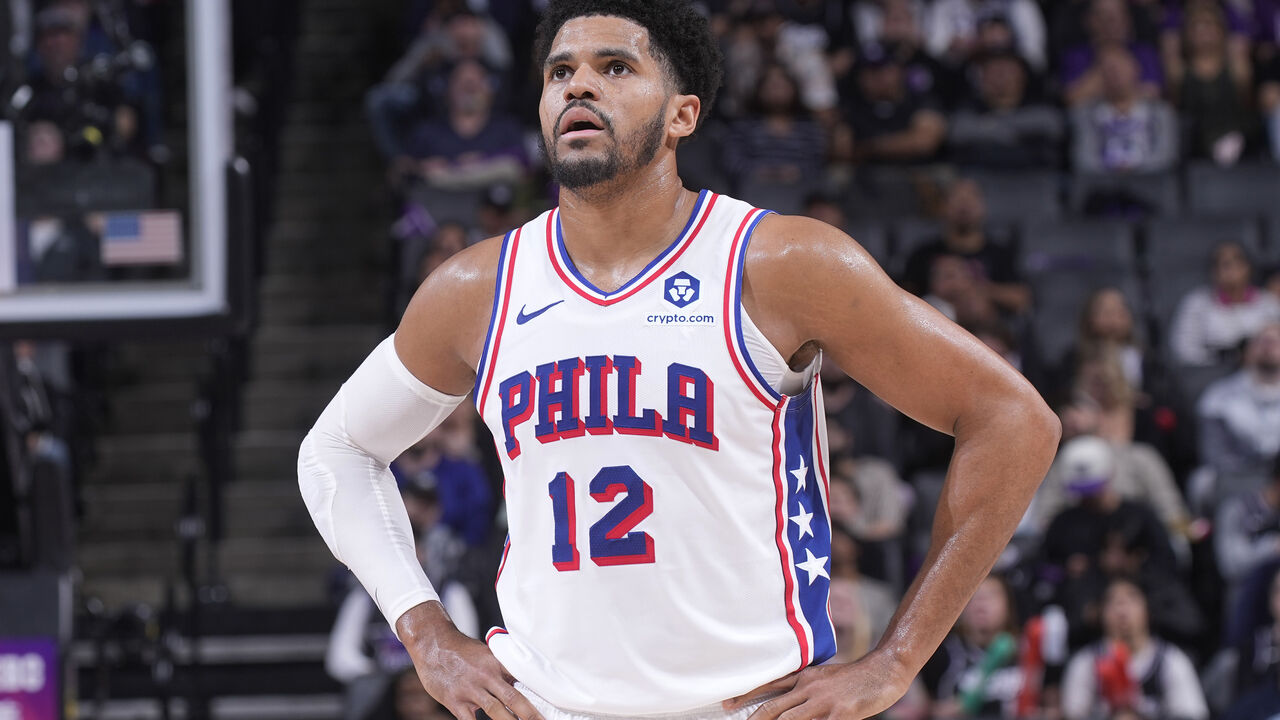
Well, we won’t have to worry about Harris’ postseason stage fright anymore now that he’s a Piston.
In all seriousness, Detroit entered the offseason with more cap space than any other team and desperately needs to provide franchise cornerstone Cade Cunningham more space to operate in. Harris, meanwhile, needed a change of scenery after five and a half years in Philly. Taking all that into account, a short-term deal for a veteran like Harris (who spent parts of three seasons as a Piston) makes sense.
For all the criticism Harris’ playoff performances wrought, he’s still an efficient scorer who has shot 52% inside the arc, 37% from deep, and 84% from the free-throw line for his career. He also averaged 17.2 points per game this past season, the 13th of his career. Harris can put the ball on the floor, create for himself, and grease the offense a little bit around Cunningham.
This move doesn’t elevate the Pistons in the Eastern Conference hierarchy, but it does make them more functional. Coming from the depths Detroit is trying to emerge, that’s a start. – Casciaro
Warriors sign De’Anthony Melton (1 year, $12.8M)
After sending Klay to Dallas in a sign-and-trade, Golden State quickly pivoted to a much different type of two-guard, nabbing Melton with the full mid-level exception.
Melton’s no splash brother, but he’s become a very reliable spot-up 3-point shooter over the years; he shot 38% from deep on 5.4 attempts per game over his two seasons in Philadelphia. He can also handle the ball well enough to serve as a secondary creator or even a second-unit initiator.
Most importantly, he’s an outstanding perimeter defender – an ace screen navigator and one of the most disruptive nail helpers in the league, all of which makes him a nice fit in a backcourt with Steph Curry. The biggest reason the Warriors fell from their championship heights in 2022 to play-in territory two years later is that their league-best defense fell off a cliff. Melton can help move it back in the right direction.
None of that is going to spark hopes of a rekindled dynasty in the Bay Area, but it’s a nice addition and a justifiable stylistic change for a team that knew it needed to let go of the past one way or another. – Wolfond
Clippers sign Nicolas Batum (2 years, $9.6M)
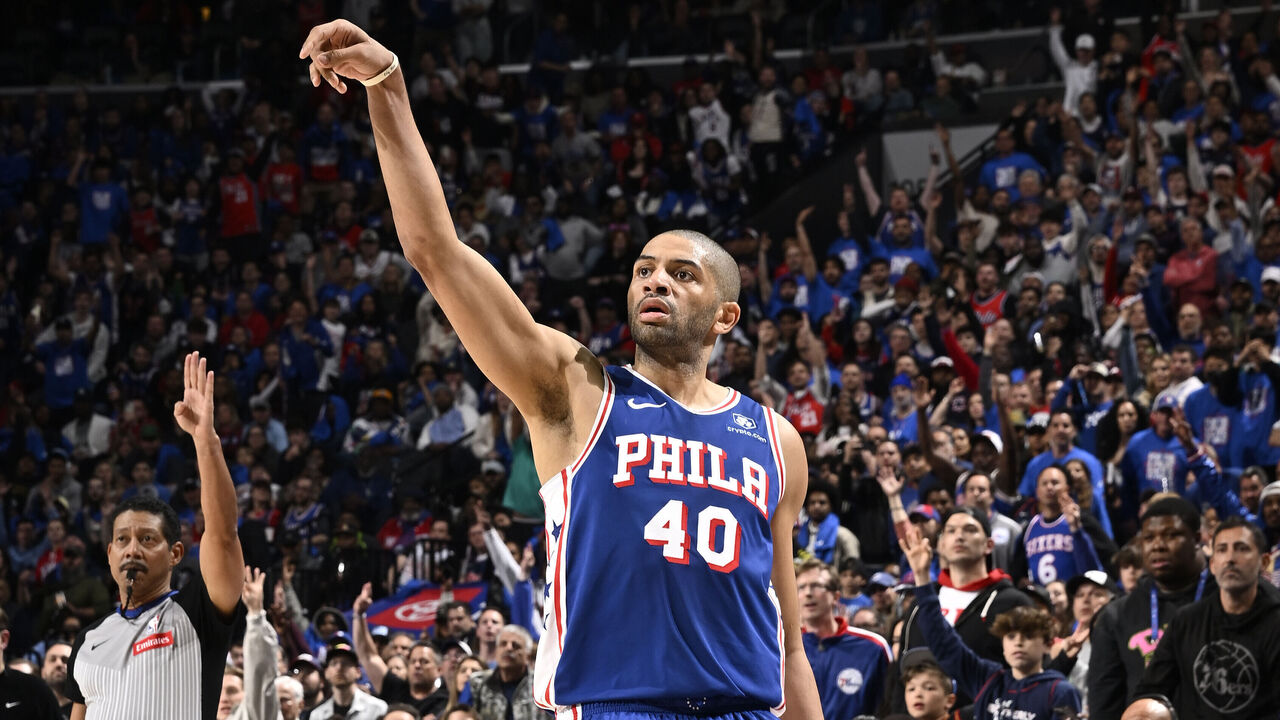
The Clippers continue to use the flexibility that relinquishing Paul George afforded them, using the biannual exception to bring back old friend Batum after spending the bulk of their non-taxpayer MLE to sign Derrick Jones Jr.
As with the Jones deal, signing Batum is a sensible use of the exception, and about as good as L.A. could’ve done under the (self-imposed) circumstances. Even at 35 years old, Batum remains an excellent and versatile defender, capable of tackling one-on-one assignments all over the positional spectrum while providing impactful help rotations either at the nail or the rim. Between him, Jones, Kawhi Leonard, Terrence Mann, and Ivica Zubac, the Clippers will at the least be able to throw out some killer defensive lineups.
And while Batum’s connective offensive skill set won’t come close to filling the team’s gaping hole on the wing, his 3-point shooting (40% over the last four years combined) and in-the-flow passing ability should be pretty helpful. – Wolfond
Bucks sign Delon Wright (1 year, $3.3M)
This one won’t knock anyone’s socks off, but Wright is a steady-handed backup point guard, and steady hands were in short supply on the Bucks’ bench last season. Though he’s a reluctant shooter and a generally passive offensive player (he’s run usage rates south of 13% in each of the last three seasons), Wright’s a solid playmaker, a rangy point-of-attack defender with a 6-foot-8 wingspan, and an overall sound decision-maker. Worth a flyer from Milwaukee. – Wolfond
Bulls sign Jalen Smith (3 years, $27M)
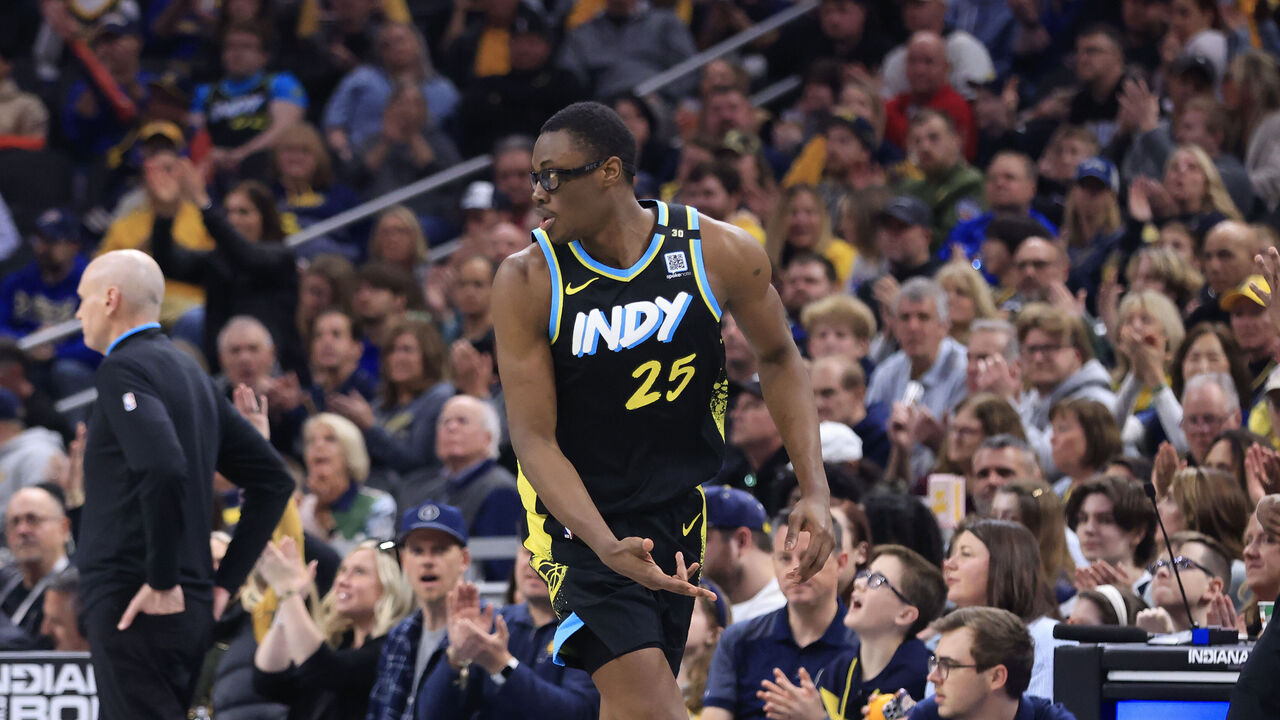
The Bulls are – or at least should be – in a transitional phase.
They traded for Josh Giddey intending to make him a foundational building block, are desperately trying to get rid of Zach LaVine, and free agent DeMar DeRozan seems likely to sign elsewhere. With all that in mind, taking a swing on Smith – a 24-year-old, offensively talented big man who shot 69% from 2-point range and 42% from deep last season – makes a lot of sense, especially with Andre Drummond out the door.
Smith’s lack of positional clarity and rim-protecting ability on defense make it tough to envision him as anything more than a tweener backup, but this can still offer pretty good value for that type of player if Smith continues to put up offensive seasons like the one he just had and establish himself as a credible floor spacer. – Wolfond
Rockets re-sign Aaron Holiday (2 years, $10M)
After a season in which they took a massive step forward, the Rockets have a lot of important business to sort out this summer, with lofty trade ambitions and potential contract extensions to negotiate for young cornerstones Alperen Sengun and Jalen Green. But they have to take care of the little things on the margins of the roster, too, and bringing back their hard-nosed reserve point guard is a decent place to start.
Holiday is a career 38% 3-point shooter (albeit on low volume), he never turns the ball over, and he’s a much tougher defender than his 6-foot stature might indicate. All of that makes him a pretty seamless backup for Fred VanVleet. – Wolfond
Jazz sign Drew Eubanks (2 years, $10M)
Utah gets a backup center who is better than Omer Yurtseven but worse than Mason Plumlee. – Wolfond

